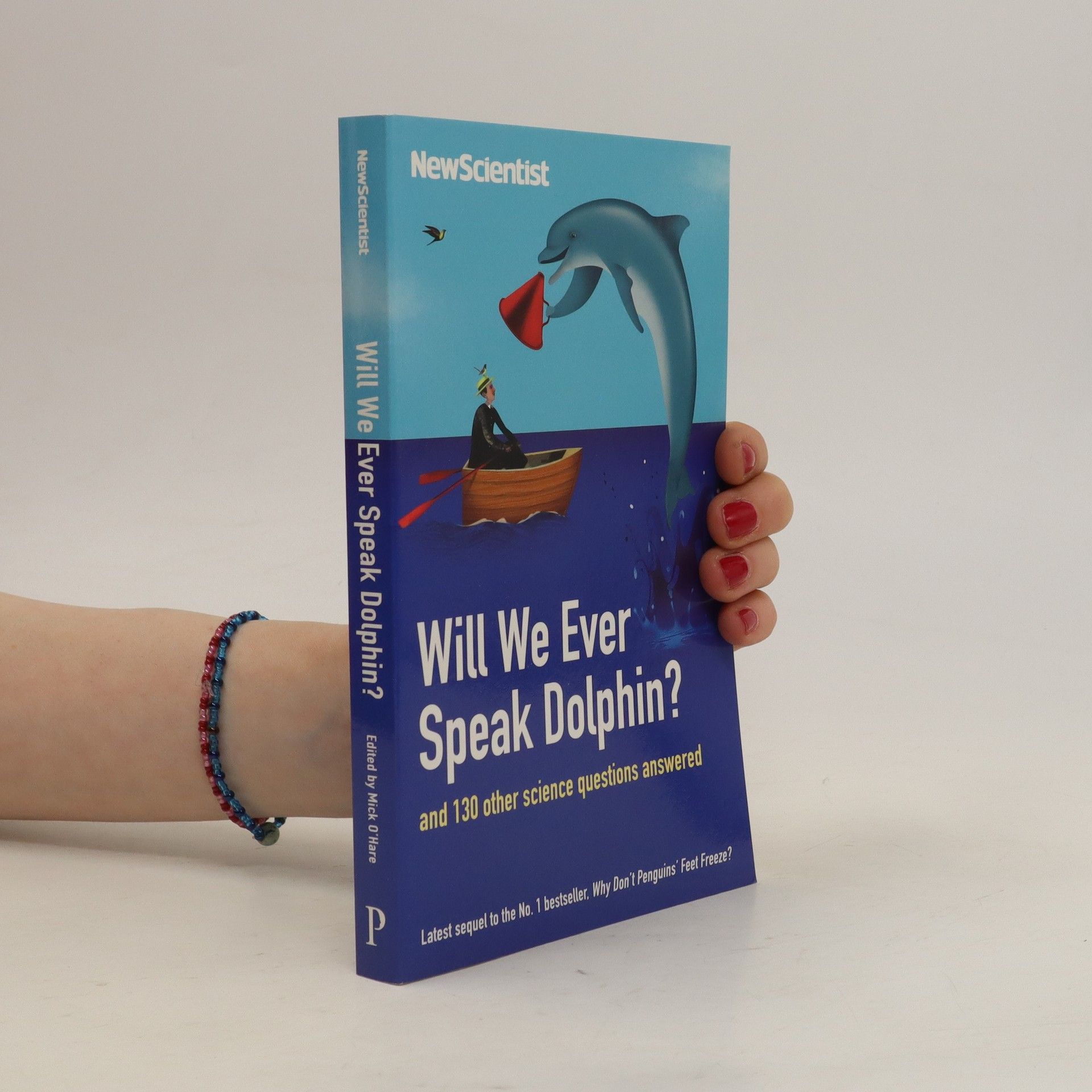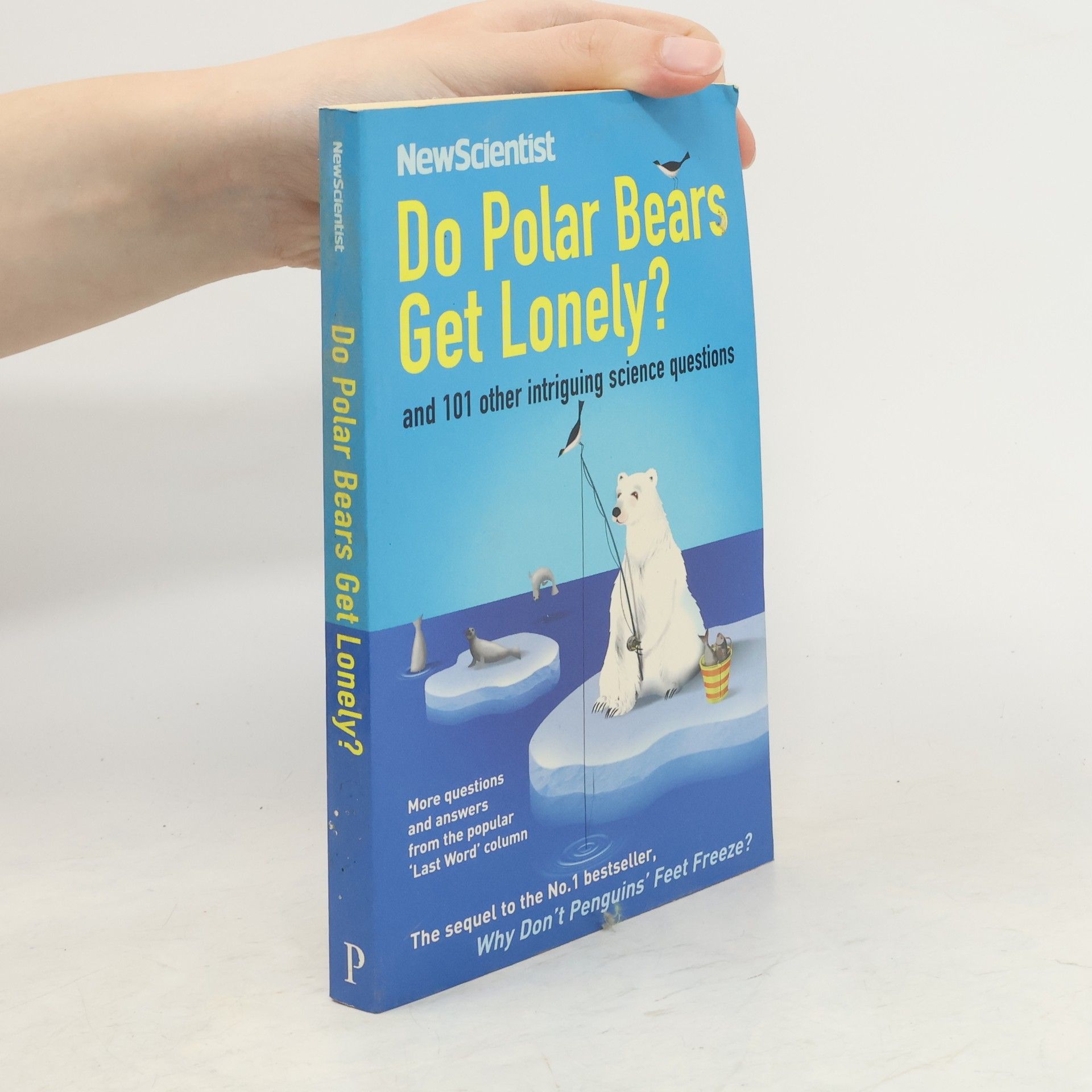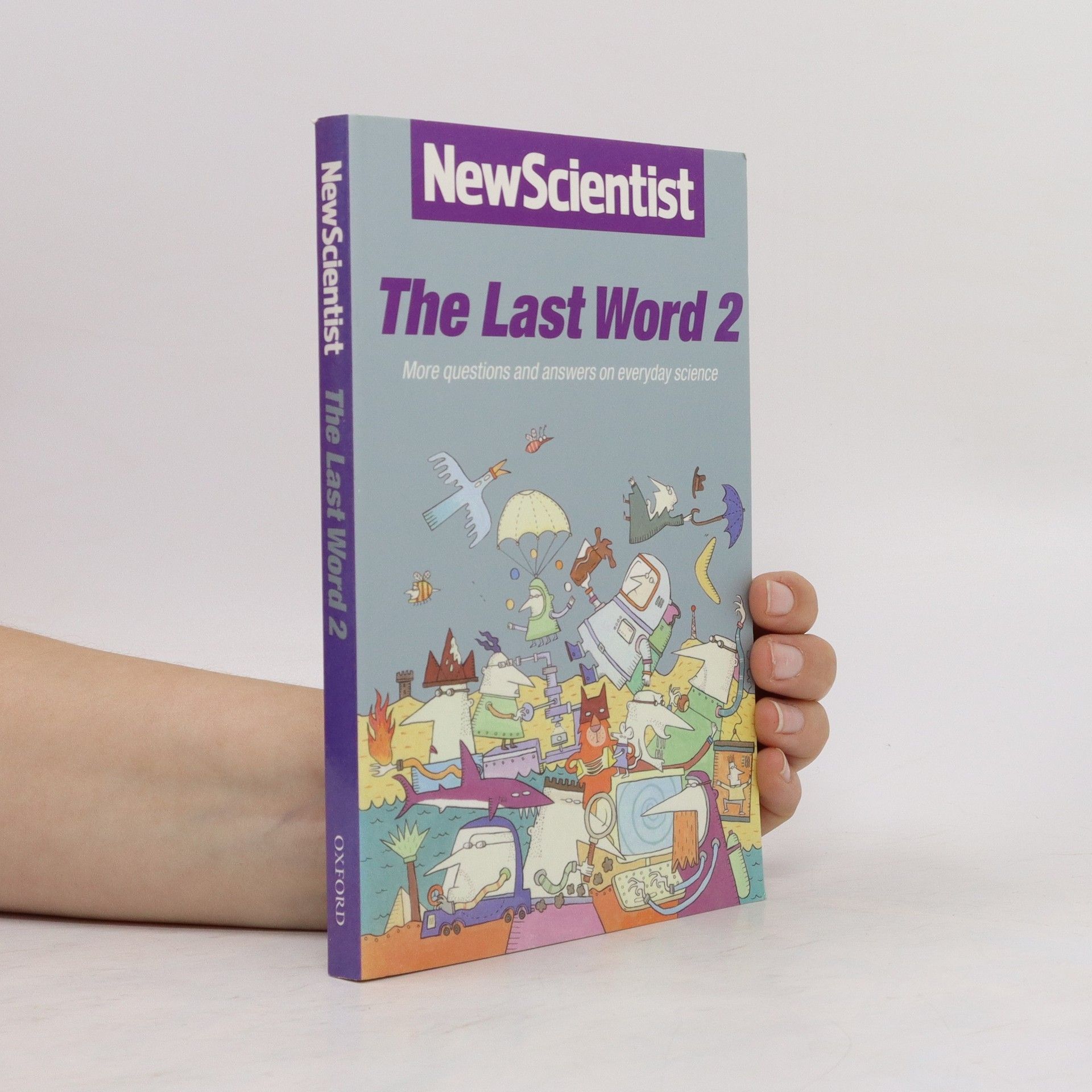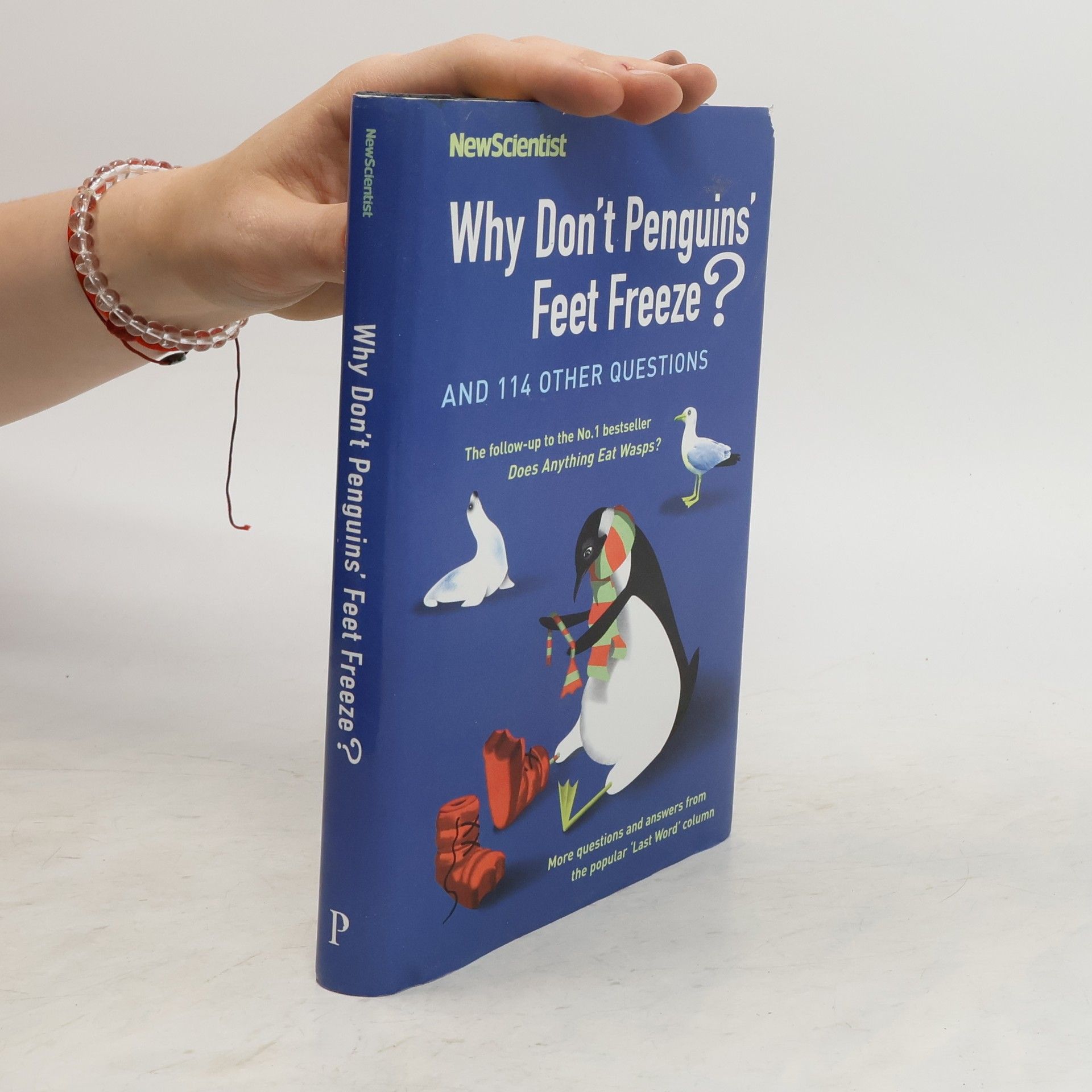The Last Word
- 238 páginas
- 9 horas de lectura
A selection of the most interesting questions and answers from the Last word column in the magazine, New scientist.
Esta serie aborda las preguntas más peculiares y desconcertantes que la gente tiene sobre el mundo que les rodea. Desde fenómenos naturales extraños hasta misterios cotidianos, cada volumen recopila fascinantes consultas de los lectores. Científicos expertos y curiosos legos colaboran para descubrir las explicaciones científicas detrás de estos maravillosos temas. Es una lectura cautivadora para cualquiera que ame descubrir las maravillas de la ciencia a través de las preguntas que se nos ocurren a todos.






A selection of the most interesting questions and answers from the Last word column in the magazine, New scientist.
Why do boomerangs come back? Would parachutists be able to play a game of catch while falling? Why does grilled cheese go stringy? What would happen to a pint of beer in space? Why doesn't cling film cling to metal properly? Why does the wind blow in gusts? A follow-up to the highly successful The Last Word, this new paperback brings you more questions and answers from The New Scientist's popular column. Readers of the leading science weekly are invited to write in with enquiries about everyday scientific phenomena and other readers respond. Thisnew selection of the most interesting examples covers an enormous range of subjects from everyday household products, to plants, animals, the human body, gadgets, and our environment. This is a fun, fascinating, and enlightening read for anyone who asks themselves these questions.
Engaging with quirky and bizarre questions, this book offers a humorous exploration of the oddities of life and science. It compiles answers to a variety of unique inquiries, ranging from the nature of eyebrows to the weight of a head, all sourced from the "The Last Word" column in "New Scientist." With a lighthearted tone, it celebrates curiosity and the joy of learning, making science accessible and entertaining. This collection invites readers to embrace their own whimsical questions and enjoy the wonder of discovery.
Amazing and intriguing questions and answers from the team behind the international phenomenon Why Don’t Penguins’ Feet Freeze? The popular-science magazine behind the runaway international bestsellers Why Don’t Penguins’ Feet Freeze? and Does Anything Eat Wasps? takes on another irresistible batch of the strange, silly, and mind-boggling questions that plague curious minds the world Culled from New Scientist’s popular “The Last Word” column and edited by Mick O’Hare, the author of How to Fossilize Your Hamster , Do Polar Bears Get Lonely? is guaranteed to amuse and amaze as much as it informs. (And if a polar bear appears to be lonely, it probably means there wasn’t enough walrus for dinner.)
Every year, readers send in thousands of questions to New Scientist, the world's best-selling science weekly, in the hope that the answers to them will be given in the 'Last Word' column - regularly voted the most popular section of the magazine. Does Anything Eat Wasps? is a collection of the best that have appeared, including: Why can't we eat green potatoes? Why do airliners suddenly plummet? Does a compass work in space? Why do all the local dogs howl at emergency sirens? How can a tree grow out of a chimney stack? Why do bruises go through a range of colours? Why is the sea blue inside caves? Many seemingly simple questions are actually very complex to answer. And some that seem difficult have a very simple explanation. New Scientist's 'Last Word' celebrates all questions - the trivial, the idiosyncratic, the baffling and the strange. This selection of the best is popular science at its most entertaining and enlightening.
Every year, readers send in thousands of questions to New Scientist, the world's best-selling science weekly, in the hope that the answers to them will be given in the 'Last Word' column - regularly voted the most popular section of the magazine. Does Anything Eat Wasps? is a collection of the best that have appeared, including: Why can't we eat green potatoes? Why do airliners suddenly plummet? Does a compass work in space? Why do all the local dogs howl at emergency sirens? How can a tree grow out of a chimney stack? Why do bruises go through a range of colours? Why is the sea blue inside caves? Many seemingly simple questions are actually very complex to answer. And some that seem difficult have a very simple explanation. New Scientist's 'Last Word' celebrates all questions - the trivial, the idiosyncratic, the baffling and the strange. This selection of the best is popular science at its most entertaining and enlightening.
The follow up to the no.1 bestseller Does Anything Eat Wasps? More questions and answers from the popular 'Last Word' column The New Scientist magazine's ever-popular 'Last Word' column produces an endlessly fascinating array of questions and answers from its readers. For all those who relish its mixture of wit, insight and scientific curiosity - not to mention those who read and enjoyed Does Anything Eat Wasps?, the brilliantly successful previous collection - this new volume will be irresistible. Why Don't Penguin's Feet Freeze? includes recent answers never before published in book form, as well as old favourites from the column's early days. This bumper collection brings together the highlights of the 'Last Word' in another wise, weird and whacky compendium that is guaranteed to amaze, inform and delight.
The second New Scientist Christmas book from its million-selling series, which explores everything from why our hair turns grey to whether bumblebees really defy the laws of physics
Why Don't Penguins' Feet Freeze? is the latest compilation of readers' answers to the questions in the 'Last Word' column of New Scientist, the world's best-selling science weekly. Following the phenomenal success of Does Anything Eat Wasps? - the Christmas 2005 surprise bestseller - this new collection includes recent answers never before published in book form, and also old favourites from the column's early days.Yet again, many seemingly simple questions turn out to have complex answers. And some that seem difficult have a very simple explanation. New Scientist's 'Last Word' is regularly voted the magazine's most popular section as it celebrates all questions - the trivial, idiosyncratic, baffling and strange. This new selection of the best is popular science at its most entertaining and enlightening.
Mick O'Hare and the New Scientist team try to answer scientific conundrums that can be answered by simple experiments.
Well, why not? Is it because elephants are too large or heavy (after all, they say hippos and rhinos can play hopscotch)? Or is it because their knees face the wrong way? Or do they just wait until no one's looking? Read this brilliant new compilation to find out. This is popular science at its most absorbing and enjoyable. That is why the previous titles in the New Scientist series have been international bestsellers and sold over two million copies between them. Like Does Anything Eat Wasps? (2005), Why Don't Penguins' Feet Freeze? (2006) and Do Polar Bears Get Lonely? (2008), this is another wonderful collection of wise, witty and often surprising answers to a staggering range of science questions, from 'why is frozen milk yellow?' to 'what's the storage capacity of the human brain in gigabytes?'.
Why do birds sing at dawn? What's the slowest a plane can fly without stalling and falling out of the sky? And how long can you keep a tiger cub as a pet? Will We Ever Speak Dolphin?, the eagerly-awaited new 'Last Word' collection, has the answers to these questions and many more. Seven years on from Does Anything Eat Wasps?, the New Scientist series still rides high in the bestseller lists, with well over two million copies sold. Popular science has never been more stimulating or more enjoyable. Like Why Don't Penguins' Feet Freeze?, Do Polar Bears Get Lonely?, and Why Can't Elephants Jump?, this collection of wry and well-informed answers to a remarkable range of baffling questions is guaranteed to delight.
And 130 More Science Questions Answers: More Questions and Answers from the Popular 'Last Word' Column
The latest title in the bestselling 'Last Word' series from New Scientist magazine.
Another classic bestseller from the million-selling New Scientist series.